
Francesco Papadia
Francesco Papadia is the chair of the Selection Panel of the Hellenic Financial Stability Fund (HFSF). He was, between 1998 and 2012, Director General for Market Operations at the European Central Bank. He worked previously at the Banca d´Italia, first as Director of the International Section of the Research Department and then as deputy head of the Foreign Department. Mr. Papadia has a degree in law from the University of Rome and attended postgraduate studies in Economics and Business at the Istituto Adriano Olivetti in Ancona and at the London Business School.
Mr. Papadia is the author of a number of publications in the fields of International Economics and Monetary Policy. While collaborating with Bruegel, the focus of his research will be on European and global macroeconomic issues, including governance questions.
Disclaimer of external interests
Featured work
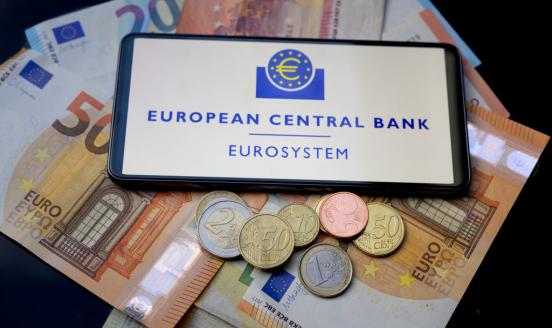
The European Central Bank’s timid operational framework update
The European Central Bank announced limited changes to its operational framework – which is probably right given current uncertainty

Government bonds in the ECB collateral framework: What role for credit ratings in the new normal?
How does the ECB's reliance on external credit assessments affect bond yields, government vulnerability, and potential sovereign debt crises?
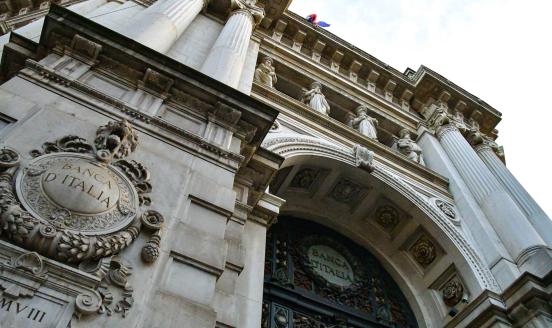
Central banks: uncertainty is the problem, not managing the trilemma
Regaining price stability is difficult but doable; the bigger problem facing central banks is economic uncertainty.
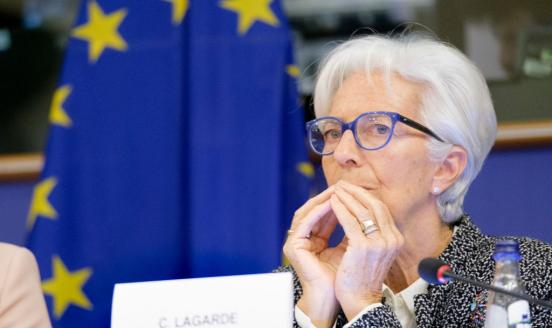
The European Central Bank’s latest move tells a clear story
The European Central Bank is right not to over-react to recent banking problems.
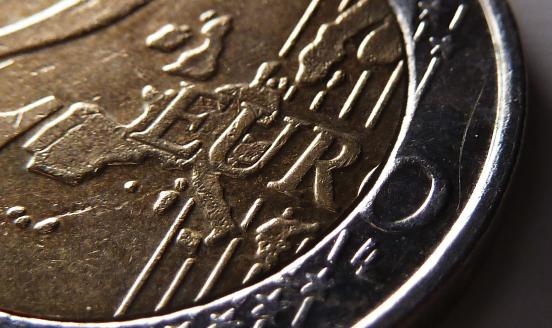
Don’t look only to Brussels to increase the supply of safe assets in the European Union
A sufficient supply of safe assets denominated in euros is critical if the European Union is to achieve a full banking and capital markets union.

National policies are the best protection against euro-area financial fragmentation risks
An analysis of German-Italian spreads under five Italian governments shows that the gap was biggest when Italian policies worried markets most.

COVID-19 in the European Union: health impacts and effects on economic activity
What matters when it comes to managing the pandemic is to prevent intensive-care admissions and deaths arising from COVID-19.

Measuring macroeconomic uncertainty during the euro’s lifetime
We draw out four indicators of macroeconomic uncertainty, measured over the lifetime of the euro.
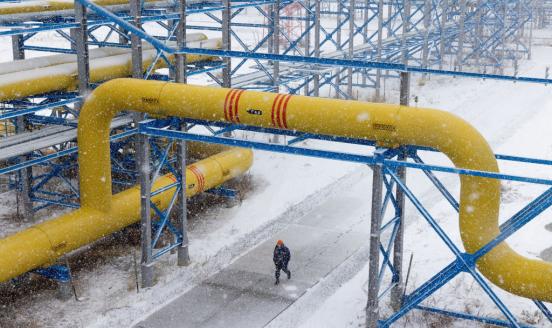
A sanctions counter measure: gas payments to Russia in rubles
A requirement for gas to be paid for in rubles is a way for Russia to side-step central bank sanctions.
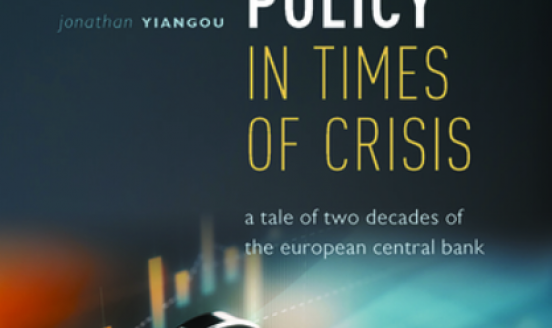
Book notes: Monetary policy in times of crisis
Review of 'Monetary policy in times of crisis: a tale of two decades of the European Central Bank' published in the Central Banking.
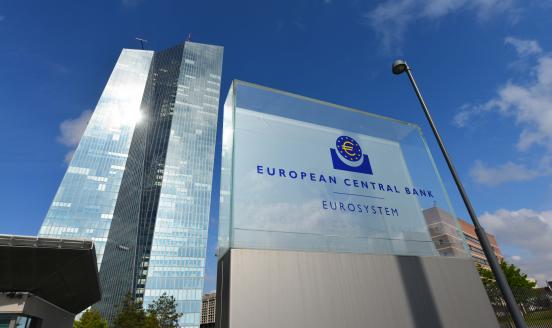
European monetary policy: lessons from the past two decades
This event will feature the presentation of “Monetary Policy in Times of Crisis – A Tale of Two Decades of the European Central Bank."

Does money growth tell us anything about inflation?
The view of one of the authors of this paper about the relationship between money and inflation can be summarised in two anecdotes.

Is the risk of stagflation real?
Most economic forecasts predict a return, in the medium-term, to pre-pandemic growth and inflation. Nevertheless, the European Central Bank and fiscal

The Value of Money, Controversial Economic Cultures in Europe: Italy and Germany
A discussion of Italian and German macro-economic cultures and performances.

Emergency Liquidity Assistance: A new lease of life or kiss of death?
Use of Emergency Liquidity Assistance to prop up euro-area banks needs to be more transparent; available evidence suggests its use has not always been
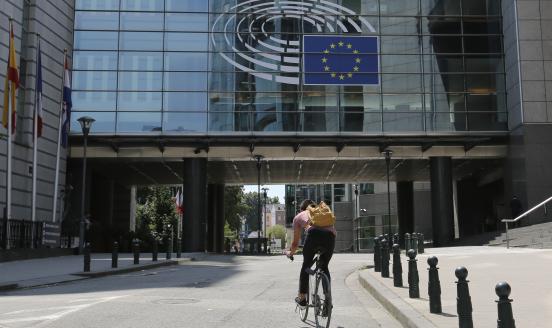
Do citizens care about Europe? More than they used to
The level of interest of European citizens in the European Union is increasing, but still lags behind EU economic and policy integration.

An alpine divide? Comparing economic cultures in Germany and Italy
A discussion of Italian and German macro-economic cultures and performances.
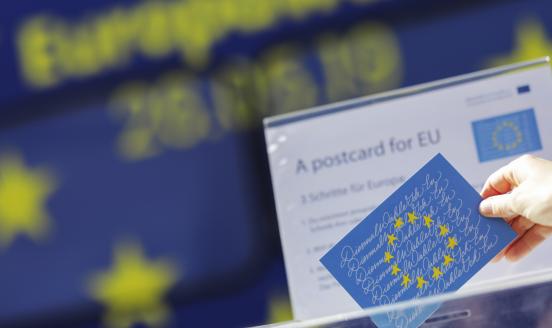
Interest in European matters: a glass three-quarters full?
Everything that increases the interest of European citizens in the EU will serve to move the EU closer to its citizens.
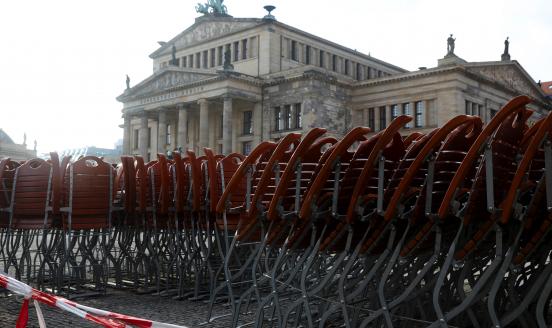
COVID-19 credit-support programmes in Europe’s five largest economies
This paper assesses COVID-19 credit-support programmes in five of the largest European economies, and examines how countries have dealt with trade-off

Government-guaranteed bank lending six months on
In March and April 2020, European governments announced massive credit support programmes. After an initial surge, take-up appears to be stabilising (

Government-guaranteed bank lending: beyond the headline numbers
Loan guarantees have been a major part of the COVID-19 support packages offered by European governments to companies. The actual take-up numbers so fa

A temporary, common fiscal stimulus to answer the mayhem of COVID-19
We are not in normal times and we have to surpass, albeit only for the duration of the COVID-19 shock, the hurdles that did not allow the euro-area to

The case for a derivative market programme
The implementation of a Derivative Market Programme could reaffirm the ECB’s credibility and strong commitment to price stability.

Three macroeconomic issues and Covid-19
COVID-19 raises a number of serious issues of a sanitary, social and economic nature. While recognizing the difficulty of giving definitive answers at
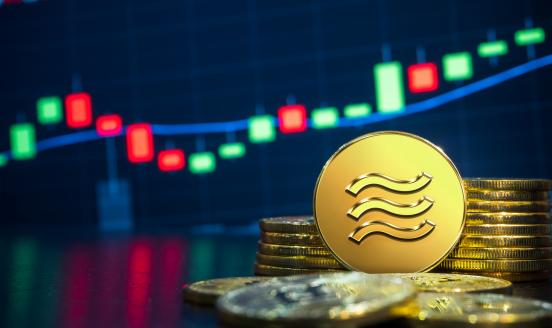
Libra as a currency board: are the risks too great?
The Libra Association claims it will be analogous to a currency board regime, but they have overlooked the problems of monetary management that come w
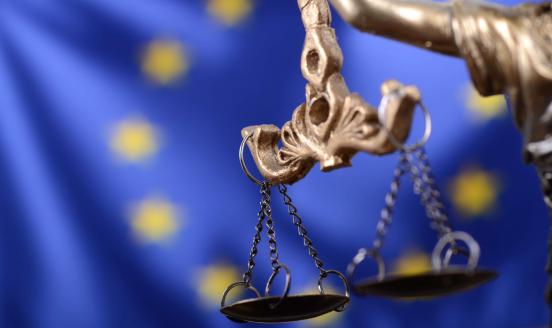
Market versus policy Europeanisation: has an imbalance grown over time?
This Policy Contribution tests the hypothesis that an imbalance has grown in Europe over the last few decades because markets have integrated to a gre

Talking about Europe: La Stampa 1940s-2010s
An on-going research project at Bruegel seeks to quantify and analyse printed media discourses about Europe over the decades since the end of the Seco

Public finance - time for a quality check
Is the quality of fiscal expenses and revenues more important than the budget deficit?

Challenges ahead for the European Central Bank: Navigating in the dark?
Since the second half of 2018, signs of a slowdown have been piling up in the euro area. The ECB will face major challenges in this potentially diffic

La Banca centrale europea
This external publication delves into the new responsibility given to the European Central Bank: supervision on banks in the euro-area. It tells its h

Talking about Europe: Die Zeit and Der Spiegel 1940s-2010s
An on-going research project is seeking to quantify and analyse printed media discourses about Europe over the decades since the end of the Second Wor
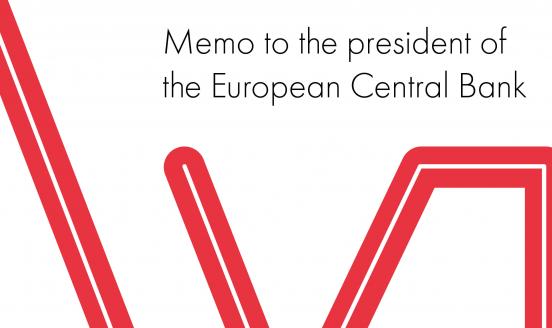
Preparing for uncertainty
Memo to the president of the European Central Bank. Grégory Claeys, Maria Demertzis and Francesco Papadia present the challenges that the next ECB pre

GNI-per-head rankings: The sad stories of Greece and Italy
No other country lost as many positions as Greece and Italy in the rankings of European countries by Gross National Income per head, between 1990 and

The shadow of Brexit: Guessing the economic damage to the UK
Under a set of assumptions, this post concludes that UK real income and investment would have been 4% and 6% larger respectively had it not been for t

Talking about Europe: Le Monde 1944-2018
An ongoing research project is seeking to quantify and analyse national printed media discourses about Europe over the decades since the end of the se

The higher yield on Italian government securities is becoming a burden for the real economy
Francesco Papadia and Inês Gonçalves Raposo have recently written on Italian fiscal policy and the increase in the spread between Italian (BTP) and Ge
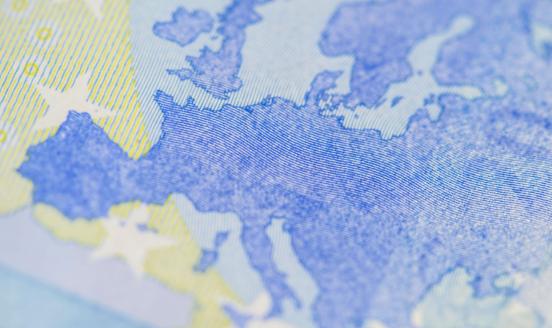
The euro as an international currency
Is a more important international role for the euro worth pursuing? What measures would achieve this result, if it is worth pursuing?

The international role of the euro
The authors assess whether the euro area should pursue a greater international role for the euro, as outlined by European Commission president Jean-Cl

The higher yield on Italian government securities could soon be a burden for the real economy
The increase in the spread between Italian (BTP) and German (Bund) government securities is directly an additional burden for Italy public finance, an
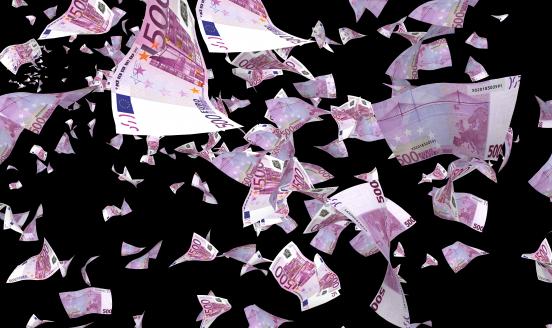
Should we care about central bank profits?
The authors investigate the ECB’s profit-making activity of the last 20 years, assessing how this was achieved and the reasons why we should care more
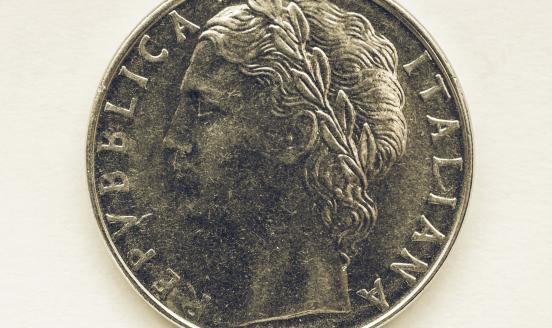
Mini-BOT in the government programme of the Five Star Movement and the League
The economic evaluation of mini-BOT very much depends on its specific characteristics. Overall it appears to be a blend of an inferior security and in
Financial services after Brexit - what path for the EU27 and the UK?
How will the European financial services industry develop after Brexit?
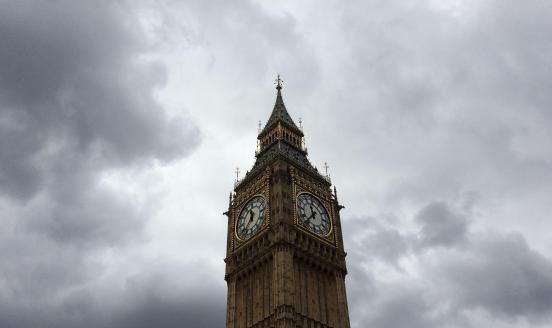
The effects of Brexit on UK growth and inflation
The full consequences of Britain’s vote to leave the European Union were never going to be immediately perceptible. As we approach the second annivers

Central banking in turbulent times
Central banks came out of the Great Recession with increased power and responsibilities. Indeed, central banks are often now seen as 'the only game in
Central banking in turbulent times
This event looked at fundamental questions about the central banking systems and how the Great Recession might have prompted a reassessment of the old

Note on the interactions between payment systems and monetary policy
This paper analyses the interactions between, on one hand, monetary policy and financial stability responsibilities of the ECB and, on the other hand,

The exchange rate and inflation in the euro-area: words following facts
The reduced references in the speeches of the President and Vice-president of the ECB to exchange rate changes in assessing inflation developments cor

Macroprudential policy: The Maginot line of financial stability
The ability of macroprudential policies to assure financial stability and thus leave central banks free to assign the interest rate tool exclusively t

A slightly tighter ECB
The ECB’s recent decision on QE was somewhat on the dovish side. Francesco Papadia gives his view on why it is time to start a discussion about reduci

The Eurosystem - Too opaque and costly?
The Eurosystem gets a lot of attention from academics and the media, but they largely focus on its statutory objective of maintaining price stability.

Phillips vs. Pass-through, or the changing ECB understanding of inflation
This blog post looks at how the approach of the ECB to inflation has changed over the years. It shows the ECB has moved, over the years, from a small
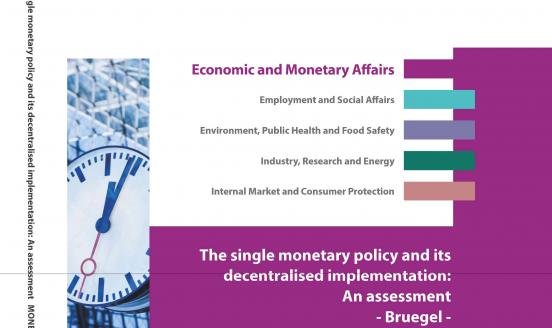
The single monetary policy and its decentralised implementation: An assessment
This paper assesses the decentralised implementation of monetary policy by the Eurosystem in terms of its transparency, efficiency and simplicity. Com

Italian economic growth and the Euro
While the Euro has frequently been blamed for the poor growth performance of Italy over the years, a long-term analysis shows deteriorating growth bef
Central banks: from omnipotence to impotence?
Like the price of financial assets, the market assessment of the capacity of central banks to achieve their price stability objective fluctuates betwe
Can the European Central Bank control interest rates?
The short answer is a hesitant yes, bordering with a timid no.
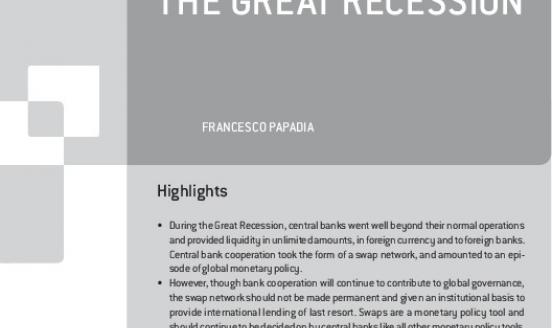
Central bank cooperation during the great recession
During the Great Recession, central banks went well beyond their normal operations and provided liquidity in unlimited amounts, in foreign currency an
What is the net of good and bad news from Brussels and Washington?
The short answer is: somewhat positive. The longer, but still broad-brush, answer starts from noting that two important documents have been issue
Where has all the (base) money gone?
The short answer is: into the liquidity trap.
Has the European Central Bank transformed itself into a hedge fund?
Some observers have accused the European Central Bank (ECB) of having transformed itself into a hedge fund because of the purchases of government secu
Chart of the week - Economic convergence in the euro area: on apprend de ses erreurs
An inexorable spiral?
Where did smart money go in 2012?
The short answer is: into the periphery of Europe.